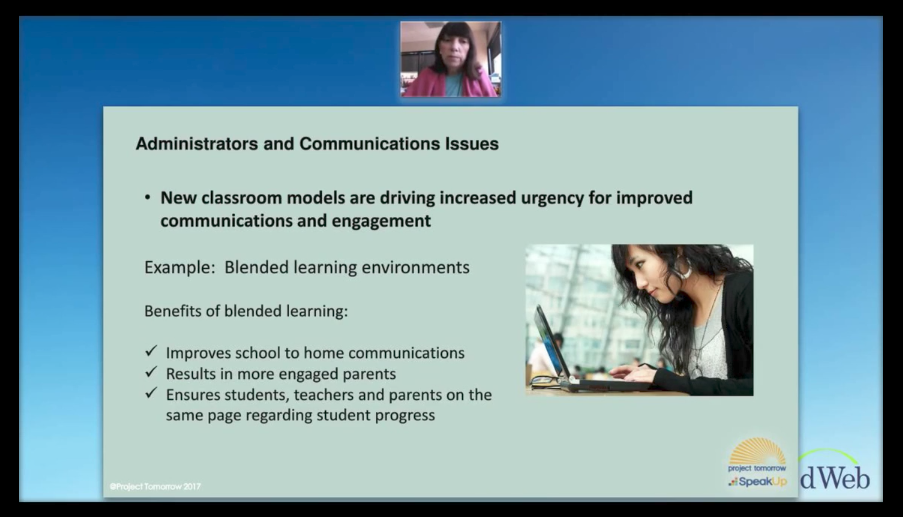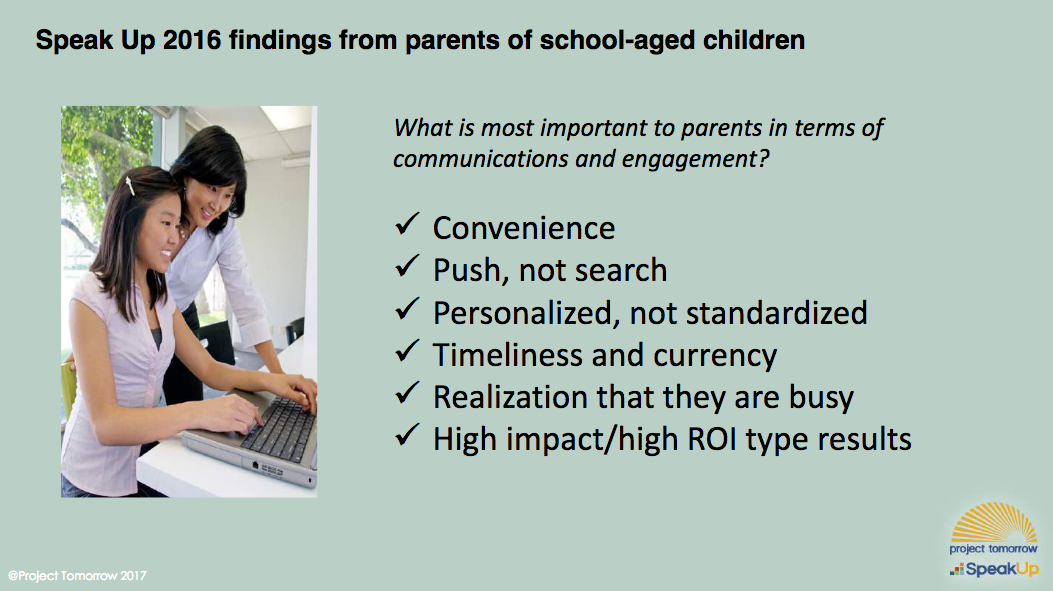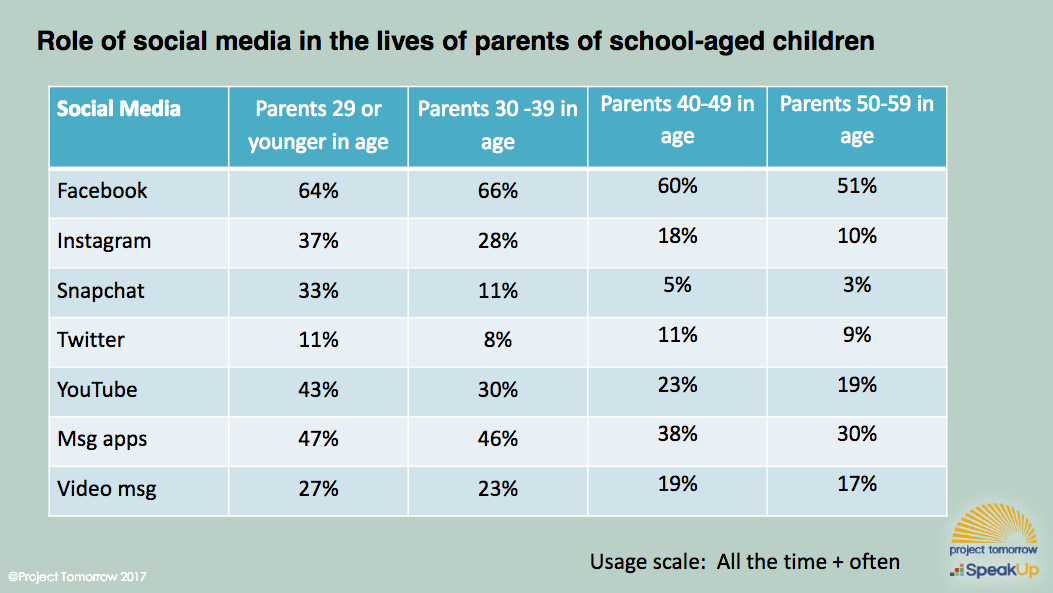What Does the Research Say About School Communications?
Parents today want more information from their children’s teachers and schools, but they also want that information to be timely, targeted, and personalized to their children or their interest areas. The latest data from Speak Up Research Project gives insights on school to home communications. In “Text, Twitter, Email, Call—What Do Parents Say About School Communications?” Dr. Julie Evans, Chief Executive Officer, Project Tomorrow, shared these insights from parents, educators, and administrators, and discussed takeaways from the research.
Schools and districts have many external audiences for communications, their primary audience being parents of school-age children. However, those thinking ahead for their children, as well as other guardians of children, want to know important information too. Parents of children too young to attend school now and grandparents are also top audiences. Regarding how that information is obtained, about 1/3 of parents say word of mouth is the primary way they get information about their child’s school, which may not be the most effective way to ensure accurate information in conveyed.
Parents want more information about their child’s education. They had four top areas which they wanted to know more about: recommendations about apps to use at home to support learning, types of technology or workplace skills their child is learning, what type of technology they should have at home to support learning, and how to work with teachers to improve learning opportunities. 68% of district communication officers were already providing information about this last point. Two of the top priorities for school or district communications professionals were increasing stakeholder engagement and increasing parental knowledge about school and district programs and policies.
For communications about individual children, parents favored email, with text messages second. Dr. Evans noted that the high texting preference did not change based on demographics like community type, poverty level, or education level, and that 95% of the parents said they had some kind of smartphone. That did not change based on those demographics either. “Parents being interested in text messaging is really about having that access to the devices and having the experience with text messaging in their own personal life as well,” she said. Tech-savvy parents also favored digital communications by almost 2:1 compared to parents with beginner tech skills.
Although 69% of parents said they always or often use Facebook, while only 12% said they never do, this doesn’t mean they believe it’s an effective communications tool. Only 16% of parents said Facebook is an effective tool for conveying information about the school or district, while 39% of principals and 78% of district communication officers said Facebook is effective. Communications officials should keep in mind their messaging on social media platforms may not be reaching all the audiences they’re interested in; mothers were more likely to use Facebook than fathers, while fathers were more likely to use YouTube or Twitter than mothers.
Dr. Evans noted that since there is a wide age range and level of experience with social media among parents, one size does not fit all as schools and districts look at different methodologies for communication. However, there are a few important points to keep in mind. Parents are busy people who need convenient ways to be notified of things. They want information pushed to them, rather than having to search for it, and for it to be timely and current. Last, since they are so busy, they want to receive high priority information such as important information about their child, upcoming events or activities, and news.
This broadcast was hosted by edWeb.net and sponsored by Blackboard.
This article was modified and published by eSchool News.
About the Presenter
Dr. Julie Evans is the CEO of Project Tomorrow, an internationally recognized education nonprofit organization. Dr. Evans is the chief researcher on Project Tomorrow’s Speak Up Research Project, which annually collects and reports on the authentic views of 500,000 K-12 students, parents and educators on education issues. In addition, she leads several other research efforts on the impact of mobile devices, digital content and blended learning models in both K-12 and higher education.
Dr. Evans is a graduate of Brown University and earned her doctorate in educational leadership from the University of California, San Diego. She serves on several boards and advisory councils and is a frequent speaker and writer on K-12 and higher education issues around digital learning. In November 2015, Dr. Evans was named one of the Top 30 Technologists, Transformers and Trailblazers nationwide by the Center for Digital Education.
Join the Community
Family Engagement & Community Outreach in K-12 is a free professional learning community where district and school administrators, teachers, and families can explore all aspects of family engagement and its positive effects on student achievement.
At Blackboard, we’re shaping the future of education with big ideas that are transforming the face of education. Every day we’re helping millions of people around the world find new ways to learn, connect and advance. With innovative technologies and solutions we’re bringing them closer to the knowledge they seek and the potential they can achieve.






Comments are closed.